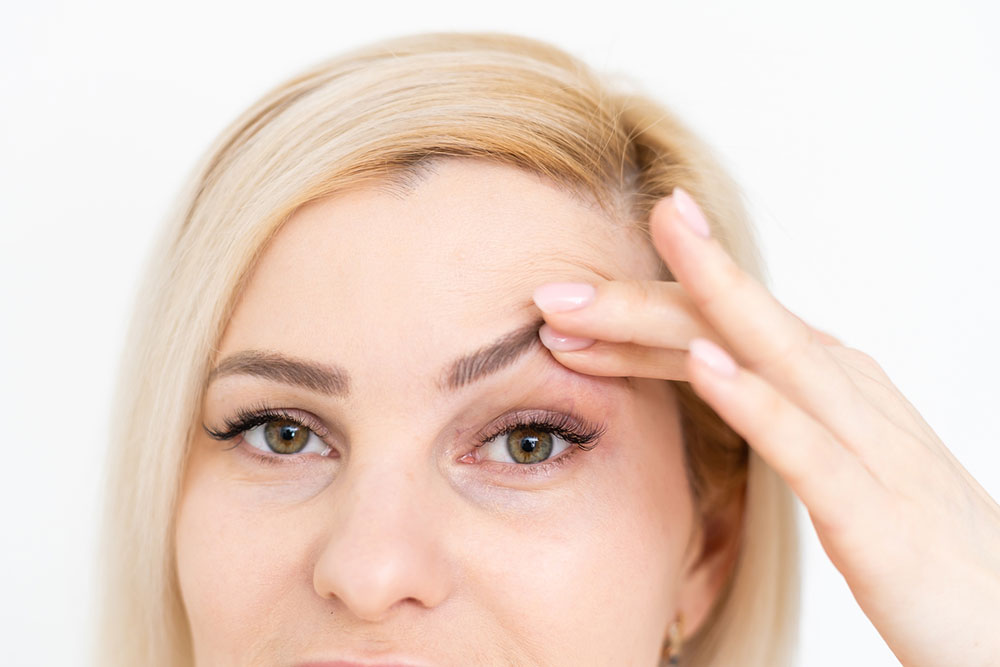Management Options to Fix Droopy Eyelids
Droopy eyes, or ptosis, may be congenital or acquired in adulthood, and an estimated 11.5% of adults have this condition. Unfortunately, many are unaware of the treatment options. This condition may be easily cured today with surgery, although doctors usually recommend it only to adults. Surgically treating droopy eyes has many benefits, including unobstructed vision. So, here’s everything to know about drooped eyes and the surgical procedure to correct it:

What are drooping eyelids?
It is a condition wherein one’s eyelids sag or droop over one’s eyes. Essentially, the levator muscle, which uplifts the eyelids, does not function optimally, which causes this condition. One may have drooping eyelids on one or both eyes, and their severity may differ. In the case of acquired ptosis, the levator muscle weakens in adulthood, which causes this condition.
Surgery for drooping or saggy eyelids
The good news is that correcting drooping or saggy eyelids with proper surgical intervention is possible. Doctors may perform three main types of surgeries to treat this condition. Given below are the steps for each of these surgical procedures:
External procedure
This type of procedure is usually the most commonly recommended one for ptosis and is suitable for those with strong levator muscles. Here are the steps involved:
- Sedation: An oculoplastic surgeon is called in to perform this procedure, and it begins by sedating the patients locally so that they are relaxed and do not feel any pain.
- Incision: Next, the surgeon makes an incision on the eyelid.
- Repositioning: The levator muscle is stitched to the tarsus, the eyelid’s connective tissue. This way, the levator muscle is repositioned for this procedure, helping one with better vision.
While the surgeon performs the procedure, the patient may be asked to make certain specific eye movements so that the doctor can gauge the correct width to which the eyelid should ideally open. The scar formed by the incision during this procedure is usually not very apparent because it is made in the creases of the eyelid.
Frontalis sling fixation
This procedure helps when a person’s levator muscles are weak and internal and external procedures cannot be performed. The doctor follows these steps:
- Sedation: The doctor begins by administering general anesthesia so the patient doesn’t feel the pain.
- Repositioning of the upper eyelid: Then, the surgeon repositions the upper eyelid, attaching it to the frontalis muscle, or the muscle located right above the eyebrow. Usually, a silicone rod is passed through the eyelid beneath the skin for this step. This way, the forehead muscles allow for the eyelid to be uplifted.
With this process, one may not be able to fully close the eyelid following the surgery, which can be a drawback of the procedure. On the bright side, this side effect is short-lived, lasting only two to three months. Since the eyes may dry up if they remain open continuously, doctors may prescribe ointments and drops to ensure that the eye is lubricated during this time.
Internal procedure
Sometimes, oculoplastic surgeons may opt for an internal procedure to treat droopy eyelids. Like the external approach, one must have strong levator muscles to withstand this surgery. Here are the steps:
- Sedation: The doctor begins by administering local or general anesthesia to alleviate pain.
- Turning the eyelid inside out: Next, the eyelid is turned inside out so that the eyelid muscles are shortened from within. If less upliftment is needed, the surgeon shortens the Muller’s muscle, which is responsible for elevating the eyelid. In contrast, the levator muscle is shortened if more upliftment is required.
Cost
Usually, a patient may be required to pay anywhere from $3,000 to $6,000 for a single eyelid (upper or lower), based on the type of surgery and how much elevation of the eyelid is necessary. So, if one has to correct both eyelids, the total cost might range between $6,000 and $12,000 or more. However, since this procedure is quite effective for most, it is usually worth the amount. One should be mentally and financially prepared because, without proper financial planning, one may face a financial crunch after the procedure.
Things to remember when getting eye surgery for droopy eyelids
Expect some swelling or bruising
Although the scar that may be created with an external surgical procedure is temporary, it might lead to some bruising and swelling, as may also be the case with other procedures. However, such symptoms are only temporary, so one needs to be mentally prepared for them when opting for surgery for droopy eyelids.
Protect the eyes from external agents and solutions
The eye area may be particularly sensitive after surgery for droopy eyelids, so one should protect the eyes from soaps, shampoos, lotion, hair spray, and other external agents and solutions immediately after the surgery.
Avoid rubbing or exerting pressure on the eyes
It is a common – and almost involuntary – habit for many people to rub their eyes, but since the muscles around the eyes are still healing after a droopy eyelid procedure, one should avoid rubbing the eyes or exerting pressure on them during this time. It is also best to limit screen time as much as possible to avoid straining the eyes.



